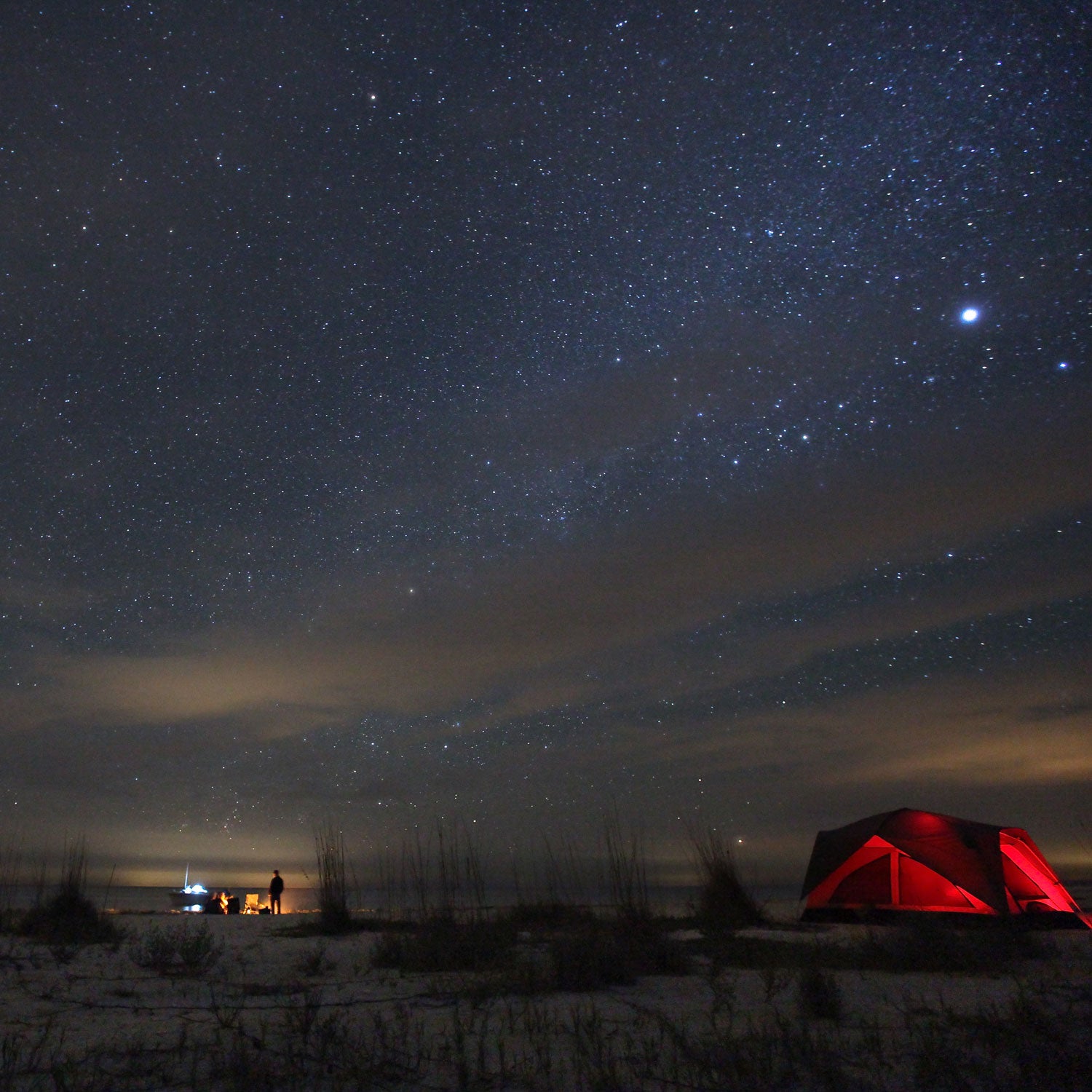Here at �����ԹϺ���, we love ultralight, durable mountaineering tents. But most camp trips don’t require such high-end (and high-priced) shelters. Even as an avid backpacker and outdoorsman, I spend most of my time car camping, using my truck as a base camp to launch other adventures. For that, I want a comfortable, roomy, water-resistant model—not one that weighs less than two pounds or can stand up to 70 mph winds.
With that said, here are the seven basic rules to remember as you shop for your first car-camping tent.
Season Ratings
Two-season tents are typically the most basic models you can buy and are designed exclusively for summer and warm-weather trips. Three-season shelters are burlier than two-season and are a good choice for camping from early spring through late fall. If you plan on doing any winter camping, you’ll want a four-season tent, which is intended for year-round use.
But here’s the thing: There is no industry standard when it comes to season and temperature ratings for tents. So you’ll want to check out the company’s claimed season ratings, but use them just as general guidelines. Pay close attention to how sturdy the poles are and how much mesh is in the tent body—two indicators of how the tent will perform and what conditions it’s best suited to.
If this is your first tent, stick with a two-season model unless you know you’re going into an area with severe weather or wind. These shelters are generally the least expensive and most breathable.
Waterproofing
Unless you live in a rainforest, don’t stress about waterproof ratings or whether you need to seam-seal your tent. First, you’re probably camping (or trying to camp) in nice weather. And second, a couple of inexpensive tarps and some paracord is often the most waterproof, least expensive solution.
Breathability
If you’re camping in a particularly hot area, you’ll want a tent with a lot of mesh and good vents. We secrete more than a pint of condensation after a night of sleep, which can make a small shelter incredibly stuffy.
Usability
It doesn’t matter how many cool accessories a tent has: It should not be difficult to set up. A good rule of thumb to follow is if you need the instructions, the tent is too complicated. Set up the shelter at least once before you buy it, and practice a few more times before you take it into the field.
Portability and Weight
Don’t worry about weight; you have a car to schlep the tent to camp, after all. But do pay attention to how tightly the tent packs down. Some car-camping tents are so large when packed down (say, four feet long) that you might not have room in your trunk for the tent plus a cooler and stove.
Size
Pay close attention to floor space. Just because a tent claims it accommodates two people doesn’t mean it comfortably accommodates two people, plus your gear and maybe a dog. This is particularly important if you plan to camp with someone you’re not interested in spooning. I always buy a tent that’s one person larger than I need. I also look for tents with roomy vestibules that act like mini-porches and can store gear.
Price
Car-camping tents cost less than their lighter-weight cousins. But don’t go for the cheapest model you can find: It’ll likely fall apart after a season. Pay close attention to the details before buying a tent. You’ll be able to tell if the shelter has poorly sewn seams or cheap, flimsy poles. Aim for something around the $200 mark.


